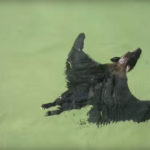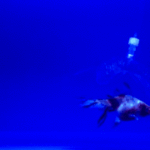Claire Nouvian, author of The Deep, provides a blunt and passionate discussion of why deep-sea fishing is very, very bad over at CNN.
In blatant ignorance of science and oblivious to common sense, bottom trawling — or “bulldozing,” as it should be called — goes on with the complicity of our governments and our own support.Large subsidies are paid to trawling fleets with our tax money. Every one of us is thus paying for industrial-scale ships to go out and pillage our planet’s last pristine wilderness, contributing to an unprecedented “oceanocide”, the largest and fastest ecological crime of all time.
But the point is made strongest when she states
A scientist has calculated that “sustainable” fishing in the deep Central Pacific would mean each ship would catch one fish a day.
As you might expect we are well over this maximum sustainable yield.






The frustrating thing about the article is that while it makes the point that deep sea fishing must be stopped, it doesn’t provide any guidance for consumers on how to tell which fish and shellfish are caught that way. It would be really helpful to know exactly what species and/or fisheries should be avoided.
There are plenty of guides out there that tell you whether the fishery is sustainable or not (eg http://montereybayaquarium.typepad.com/sea_notes/2010/09/whole-foods-seafood-watch-team-up.html ), but the info may be limited to the target species and not include bycatch. Also, recent research shows that one of the more important schemes seem to fail their objectives, despite huge amounts funding backing it (http://www.sciencedaily.com/releases/2010/09/100901132159.htm )
Seems like it’s a matter of looking up whether the fish/seafood you regularly buy comes from the deep-sea, if it does and you care about the health of our oceans, then don’t buy it. Fishbase might be able to guide people in this.
Good that someone has the guts to put it so bluntly, long enough has the damage to the seafloor and its ecosystems caused by destructive fishing practises been shrouded in scientific reservedness (partly due to lack of funding to perform conclusive fisheries research!)
A la mountain top removal, maybe they should call it ocean bottom removal. Not exactly analogous, but evocative.
Simple solution: all of them.